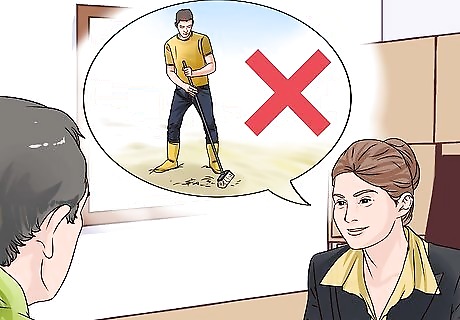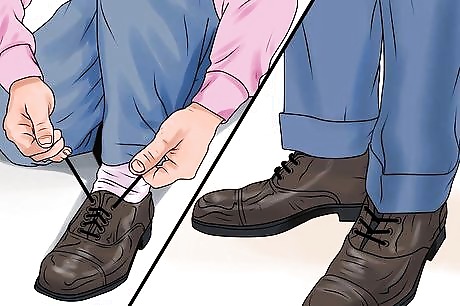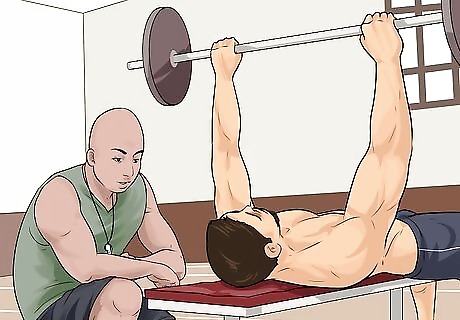
views
Finding Out Your Legal Position

Speak to your attorney or legal representation. You need to be absolutely clear about the details of your house arrest. House arrest is used in a variety of different cases and in a variety of different ways. If you are uncertain about what rules you have to abide by in order not to violate the terms of your house arrest, speak to your lawyer or attorney and double-check everything. The penalties for violating the terms and conditions of house arrest can be heavy. You could end up in prison for an infraction. Make sure you know what you can and can't do, and where you can and can't go.

Determine if you can work while under house arrest. One of the advantages to being under house arrest rather than incarcerated in a prison is that, in some instances, you can continue to work. Finding work after spending time in prison can be difficult so if you can maintain employment during your house arrest you will be in a much better position when it comes to an end. If you are able to work, the hours you can do will have been agreed as part of your court ordered house arrest. You will have to provide detailed information to the court or the office who oversees your case. This will include information about where you are working, what hours you are there, and how long it takes you to get there. Take extra care to be precise in the information you provide to avoid any potential problems.

Expect financial costs. In most cases, people under house arrest are required to contribute towards the costs associated with the maintenance of the electronic monitoring device. Make sure you have the full picture about how much and how often you will be required to pay. Don't forget you will also need to pay court fees and filing fees as well. These costs will make it even more important that you are able to work. This option might be removed if you fail to abide by the conditions of your house arrest. The costs you can be expected to pay vary on a case by case basis, and each probation department is different. If it is is worked out on a sliding scale, you may have to pay around 1.1% of your annual earnings. This is by no means a fixed amount, so ask your attorney if you are unsure. You can expect to pay either monthly or weekly.

Don't interfere with your electronic monitoring device. As frustrating as it will be to have an ankle monitor, it's important to understand the consequences of interfering with it or removing it. This will be a violation of the conditions of your house arrest and can result in you being transferred to a prison and required to serve the rest of your sentence there. Your ankle monitor will be regularly inspected for any signs of tampering or damage. The device may send a signal to the receiver if you try to tamper with it. It is a criminal offence to remove, tamper or alter an electronic monitoring device. You can be arrested if a police officer has probable cause to believe you have done this. Not recharging the monitoring device can also count as interfering or damaging it.

Know how long your house arrest will last. Unlike time spent in jail, under house arrest there is no possibility for your sentence to be reduced due to good behaviour or accumulating time credits. If you are sentenced to 100 days under house arrest, you will be under house arrest for 100 days. There are no time credits and you must observe the terms and conditions for the full period.
Sticking to the Guidelines Provided

Be certain of what checks you will be submitted to. People who are detained under house arrest will in many instances be subject to monitoring of more than your whereabouts. Depending on your conviction, you can be required to submit to alcohol and/or drug testing. If you are in any doubt about what to expect talk to your attorney and ask them specifically any drug and alcohol tests.

Recognise how a SCRAM device works. If your conviction was related to alcohol consumption, or the judge deemed you to have a problem with alcohol, she may require you to wear what is known as a SCRAM device. SCRAM stands for Secure Continuous Remote Alcohol Monitor and is a bracelet that monitors your alcohol consumption, which you might be required to wear as part of the conditions of your house arrest. In most instances this device doesn't monitor your whereabouts, but it does continuously monitor alcohol concentration. It works by monitoring the concentration of alcohol in the perspiration on the surface of the skin. It uses similar technology as a breathalyser, and as such can detect very small concentrations of alcohol.

Determine if you are required to wear drug patches. If your conviction was related to narcotics, the judge may require you to wear patches which detect if you have taken any drugs. Generally a patch will last a week before it is taken off and replaced. The patches will then be tested for traces of drugs, such as marijuana, heroin, PCP, methamphetamines and cocaine. As with every other condition of your house arrest, if you violate the agreement you may lose your house arrest status and have to serve the remainder of your sentence in prison.
Getting Through Everyday Life

Make precise schedules. Depending on your circumstances and the conditions of your house arrest you may have some leniency to go about everyday tasks such as buying food or picking up your children from school. Make sure you draw up a precise schedule of your movements which marks out where you will be at all times. If you finish work at 5 and are going to buy the groceries on the way, so will be back at 6.30, this needs to be in your schedule and agreed with the officer leading your case. They can check where you are with surprise visits, so you need to be where you said you would be. Commonly you will be approved to go out for education, medical treatment, religious worship, and community service programs.

Wear clothes that cover your ankle monitor. You will probably be feeling self-conscious about having a highly visible monitoring device strapped to your ankle. Although you should never interfere with it, covering it up with clothes when you are at work is perfectly acceptable. Wearing looser fit trousers, for example, can hide the fact that you have an ankle monitor on. This could help you avoid unwanted attention.

Try to think of it as a possibility, not a burden. As much as house arrest will be a very difficult experience, it is almost certainly preferable to jail. Try to think of it as a possibility to build-up towards your life after the sentence ends. Be sure to take all opportunities you are given to continue working. Be as active as is possible, and permitted. Consider any educational and training possibilities, and be sure to ask your attorney about what you can do to try to move forward. It is time limited, and despite how you may feel, if you abide by the conditions you will get through it. The evidence suggests those under house arrest are less likely to re-offend after their sentence is up.


















Comments
0 comment